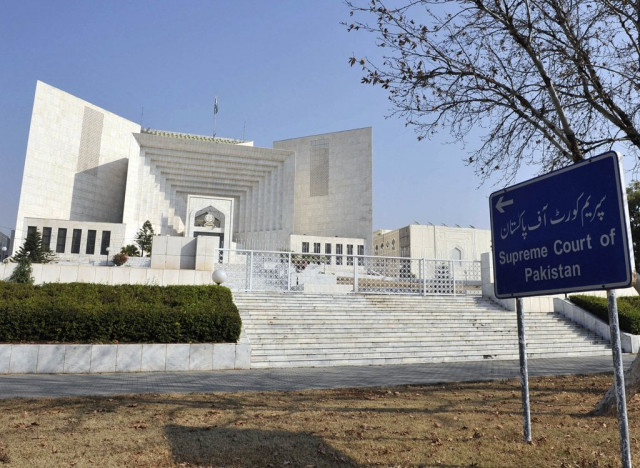Bail matters: ‘Trial, high courts have original jurisdictions’
SC says accused cannot approach SC for bail if he earlier withdraws a bail petition from a high court

The Supreme Court has ruled that an accused cannot approach it for grant of post arrest bail if he has earlier withdrawn a bail petition from a high court.
"The appellate jurisdiction of this court, under Article 185(3), in bail matters is quite distinct from the original jurisdiction of the high court and court of session under Section 498, Code of Criminal Procedure (CrPC),” said an order authored by Justice Syed Mansoor Ali Shah.
Justice Shah was part of a division bench – also comprising Justice Aminuddin Khan – which heard the post arrest bail plea of an accused whose bail petition was earlier dismissed by the Lahore High Court (LHC) when the counsel for the accused had opted to withdraw the plea.
The SC order noted that the essential criterion of the apex court’s appellate jurisdiction is that it examines and if required corrects the errors, if any, of a lower forum – a sessions court or a high court.
“That being the nature of appellate jurisdiction, this court examines the legality of the orders passed by [a] high court in bail matters and corrects those orders in appellate jurisdiction under Article 185 (3) of the Constitution only when it finds that the high court has exercised the discretion in granting or declining bail arbitrarily, perversely or contrary to the settled principles of law, regulating bail matters."
The order said Section 498 CrPC confers original and concurrent jurisdiction on the High Court and Court of Session to grant bail, by stating that “the High Court or Court of Session may in any case…direct that any person be admitted to bail”.
"That is why when a trial court declines to grant post arrest bail under Section 497, CrPC to a person accused of having committed a non-bailable offence, [he] a fresh petition under Section 498, CrPC in the Court of Session and, in case of failure to obtain the relief once again approaches the High Court.
Also read: Supreme Court divided on question of pre-arrest bail
"The Court of Session and the High Court have original jurisdiction to grant bail and they make their own independent orders on the said petitions without commenting upon and setting aside the order of the trial court.
"The power of the High Court and the Court of Session, under Section 498 CrPC, to grant post arrest bail is thus co-extensive and concurrent with that of the trial court under Section 497 CrPC, while the power to grant pre-arrest bail under the said section is exclusive to them," the order added.
In the present case, the order said, the bail petition filed in the high court was withdrawn by the petitioner himself and the high court accordingly dismissed the same as withdrawn.
It said the grounds agitated in the petition did not point out any legal error in the order of the high court and gave no justification for filing of the present petition, “which is therefore utterly misconceived”.
"Though the counsel for the petitioner has requested to withdraw the present petition, we are of the view that the filing of such a vexatious petition has wasted the precious public time of the court.
“Therefore, while allowing the petitioner to withdraw the present petition we dismiss the same as withdrawn, and also impose costs of Rs10,000/- on the petitioner, under Rule 3 of Order XXVIII of the Supreme Court Rules, 1980,” the order said.
It said the said costs shall be deposited by the petitioner with any recognized charitable organization and receipt thereof will be submitted with the office of the Deputy Registrar at the SC Lahore Branch Registry within 15 days.
“In case of failure by the petitioner to deposit the said costs, the Advocate-on-Record for the petitioner, shall be personally liable to deposit the said costs in terms of Rule 25 of Order IV of the Rules," said the SC verdict.



















COMMENTS
Comments are moderated and generally will be posted if they are on-topic and not abusive.
For more information, please see our Comments FAQ